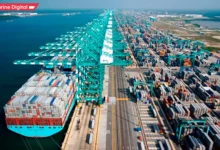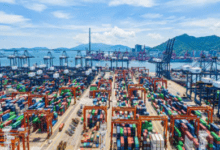
10 Factors Affecting Industries In Nigeria
Factors Affecting Industries In Nigeria – Nigeria is a country in West Africa that is known for its diverse economy and natural resources. The Nigerian economy is driven by a variety of industries, including oil and gas, telecommunications, banking, and agriculture. The oil and gas industry is one of the most important sectors in Nigeria, as it accounts for a significant portion of the country’s GDP. Telecommunications is another key industry in Nigeria, with a rapidly growing mobile market and increasing internet penetration. Information Guide Nigeria
The banking sector in Nigeria is also well-developed, with many major international banks operating in the country. Agriculture is another important sector in Nigeria, with the country being one of the world’s leading producers of palm oil and cocoa. Other significant industries in Nigeria include manufacturing, construction, and transportation.
👉 Relocate to Canada Today!
Live, Study and Work in Canada. No Payment is Required! Hurry Now click here to Apply >> Immigrate to CanadaRead Also: 10 Factors Affecting Occupational Health and Safety in Nigeria
What are Industries?
Industries refer to the economic sector that produces goods or provides services. Industries can be categorized into several types, such as primary (agriculture, mining, and fishing), secondary (manufacturing and construction), and tertiary (services such as retail, finance, and healthcare). Within each sector, there are many different industries, such as automotive, pharmaceuticals, and technology. Industries play a significant role in a country’s economy, as they provide jobs and generate income through the production and sale of goods and services. Factors Affecting Industries In Nigeria
Types of Industries in Nigeria
Nigeria has a diverse economy with various industries. Some of the major industries in Nigeria include:
- Oil and Gas: Nigeria is one of the largest oil-producing countries in the world, and the oil and gas industry is a major contributor to the country’s economy.
- Agriculture: Nigeria is a major producer of agricultural products such as cocoa, palm oil, rubber, and groundnuts. Agriculture accounts for a significant portion of the country’s GDP and employs a large portion of the population.Best University To Study Creative And Visual Art In Nigeria
- Construction: The construction industry in Nigeria has been growing in recent years, driven by the government’s infrastructure development programs and private sector investments.
- Manufacturing: The manufacturing industry in Nigeria includes the production of goods such as textiles, cement, food and beverages, and pharmaceuticals.
- Banking and Finance: The banking and finance sector in Nigeria is well-developed and includes a mix of local and international banks 50 Best Private University In Nigeria According To NUC
- Telecommunications: The telecommunications industry in Nigeria is one of the fastest-growing in the country, driven by the increasing penetration of mobile phone technology.
- Tourism: The tourism industry in Nigeria is still at a nascent stage but is expected to grow in the future, as the country has a rich cultural heritage and diverse tourism potential.
- Transportation: Transportation in Nigeria is a vital sector of the economy, as it enables the movement of goods and people across the country.
Read Also: 10 Factors Affecting Infrastructure Development In Nigeria
Advantages of Industries in Nigeria
There are several advantages of industries in Nigeria, including:
- Abundant Natural Resources: Nigeria is rich in natural resources such as oil and gas, solid minerals, and agricultural resources which can be used to fuel industrial growth.
- Large Market: With a population of over 200 million people, Nigeria has a large domestic market for goods and services.NYSC Portal
- Strategic Location: Nigeria is located in West Africa, providing easy access to other African markets and the potential for exports to Europe and America.
- Government Support: The Nigerian government has implemented policies to promote industrial development and attract foreign investment.
- Skilled Labor: Nigeria has a large population of young, educated people, many of whom are available for work in the industrial sector. JAMB Portal
- Diversification of Economy: The development of Industries will help to diversify the Nigerian economy, which is currently heavily dependent on oil and gas.
- Increase in GDP: The growth of the industrial sector will lead to an increase in the Gross Domestic Product (GDP) and employment opportunities.
Read Also: 10 Factors Affecting Primary Health Care In Nigeria
Industries and the Nigerian Society
Nigeria has a diverse economy with a history of industry dating back to the colonial period. During British rule, Nigeria’s economy was primarily based on the export of agricultural products such as palm oil and groundnuts. In the mid-20th century, Nigeria began to develop its oil and gas industry, which quickly became the main driver of the economy.JAMB Result
In the 1960s and 1970s, the government implemented policies to encourage the development of local industries and reduce the country’s dependence on imported goods. As a result, Nigeria’s manufacturing sector grew, with the establishment of factories for the production of textiles, steel, and cement.
👉 Relocate to Canada Today!
Live, Study and Work in Canada. No Payment is Required! Hurry Now click here to Apply >> Immigrate to CanadaHowever, the oil boom of the 1970s led to a neglect of other sectors, resulting in a lack of diversification in the economy. The fall in oil prices in the 1980s and the mismanagement of the oil revenue by the successive government led to economic stagnation, and a decline in Nigeria’s manufacturing sector.
In recent years, the Nigerian government has been focusing on diversifying the economy and promoting the growth of other sectors such as telecommunications, banking, and consumer goods. Despite this, the oil and gas industry remains a major contributor to the country’s economy.
Read Also: 10 Factors Affecting Quality Education in Nigeria
Factors affecting Industries in Nigeria
Several factors affect industries in Nigeria, including:
- Corruption: Nigeria has a history of corruption, and this can hurt industries by making it difficult for companies to do business and operate efficiently. 200 romantic love message for her
- Lack of Infrastructure: Nigeria’s infrastructure is underdeveloped, which makes it difficult for industries to transport goods and access resources.
- Political Instability: Nigeria has a history of political instability, which can make it difficult for industries to operate and plan for the future.
- Bureaucracy: Nigeria’s bureaucracy makes it hard for industries to navigate regulations and obtain necessary permits and licenses.
- Economic Instability: Nigeria’s economy is prone to fluctuations, which can make it difficult for industries to plan for the future and make investments.
- Power Supply: Nigeria’s power supply is unreliable, and it’s making it difficult for industries to operate and increasing costs.
- Foreign Exchange Rate: The exchange rate in Nigeria is not stable and it makes it hard for industries to plan and invest. 105 good morning messages
- Foreign Competition: Nigeria faces strong competition from foreign companies, which makes it hard for domestic industries to compete.
- Access to Finance: Access to finance is limited in Nigeria, which makes it difficult for industries to invest and grow.
- Human Capital: Nigeria’s human capital is underdeveloped, which makes it difficult for industries to find skilled labor and improve productivity.
Read Also: 10 Factors Affecting Exclusive Breastfeeding In Nigeria
Conclusion
Nigeria is a country with a diverse and robust economy, with many industries contributing to its growth. The oil and gas industry is a major contributor to the Nigerian economy, providing a significant revenue for the government and employment opportunities for citizens. Additionally, the manufacturing and agricultural sectors are also significant contributors to the economy.
However, the country still faces challenges such as inadequate infrastructure and corruption, which hinder growth in these industries. Despite these challenges, Nigeria’s industries have the potential to continue to drive economic development and improve the standard of living for its citizens.
Check JAMB RESULT
Check and Confirm: How much is Dollar to Naira








